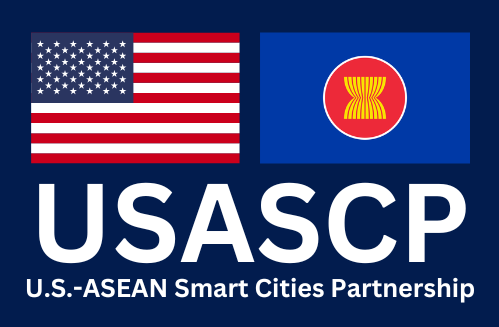U.S.-ASEAN Smart Cities Partnership
The U.S.-ASEAN Smart Cities Partnership (USASCP) seeks to harness the expertise of the U.S. public and private sectors to collaborate with member cities in the ASEAN Smart Cities Network (ASCN) to meet the varied challenges of rapid urbanization and help improve the lives of people of the region. Read the Full U.S.-ASEAN Smart Cities Partnership…
Key Performance Indicators on Smart Sustainable Cities
By the International Telecommunication Union A discussion on why key performance indicators (KPIs) are important for smart cities. Download KPI Report
Smart Cities: A Toolkit for Leaders
By Knowledge@Wharton, University of Pennsylvania Mayors and other leaders often have to prioritize among the various needs of the community in light of budget constraints. The key is to strategically pick the projects that will bring the most impact to a city and result in the most good. Read the Full Smart Cities Toolkit
ASEAN Smart Cities Network by the Centre for Liveable Cities
The 10-member Association of South East Asian Nations (ASEAN) has a population of more than 630 million, with a combined Gross Domestic Product (GDP) per capita of US$4,034 in 2016. By 2016, ASEAN had grown to become the sixth largest economy in the world. With such rapid urbanisation, ASEAN’s cities are increasingly confronting challenges. This…
The ASEAN Smart Cities Network, a Guide for Partners
The ASEAN Smart Cities Network, a Guide for Partners, is a four page infographic discussing how ASEAN can adopt technological and digital solutions to overcome the challenges of rapid urbanisation. Read the ASEAN Smart Cities Network, a Guide for Partners
USASCP Concept Note for U.S.-ASEAN Smart Cities Partnership
USASCP Concept Note outlined the United States’ proposal to establish a U.S.-ASEAN Smart Cities Partnership. If welcomed, we would expect Vice President Pence to announce our partnership in November at the U.S.-ASEAN Summit. Read the Full USASCP Concept Note
East Asia Summit Leader’s Statement on ASEAN Smart Cities
Challenges are arising from rapid urbanisation, and the importance of collaboration among the EAS participating countries to address the associated challenges is recognized. The ASCN’s primary goal is improving the lives of ASEAN citizens, using technology and digital infrastructure as enablers. Read the Full East Asia Summit Leader's Statement
Chairman’s Statement of the 33rd ASEAN Summit
The Heads of State/Government of ASEAN Member States, gathered in Singapore for the 33rd ASEAN Summit on November 13, 2018. The ASEAN Smart Cities Framework was adopted and the importance of the ASCN was reaffirmed. Read the Full Chairman's Statement
McKinsey Global Institute: Smart Cities in Southeast Asia
This report offers an overview to help cities understand the promise and limitations of the new technologies at their disposal and to help private-sector companies and citizens themselves anticipate the coming wave of change. "Southeast Asia has a window of opportunity to set its smaller cities on a more sustainable development path and to address…
ASCN Smart City Action Plans
This 60-page booklet describes the action plans for each of the 26 pilot cities in the Network. Each Smart City Action Plans (SCAPs) consists of the following four components: Vision: The city’s overall vision for smart city development by 2025;Focus Areas: The areas the city has chosen, out of 6 broad categories listed in the…
ASEAN Smart Cities Framework
The ASEAN Smart Cities Framework serves as a non-binding guide to facilitate smart city development in each ASCN city, in a manner that is specific to each city’s needs and potentials, as well as its local and cultural context. This document articulates the key features of ASEAN’s smart cities, by i) identifying strategic outcomes; and…
ASEAN Smart Cities Network by the Ministry of Foreign Affairs
This presentation, put together by the Ministry of Foreign Affairs, discusses the five W's about ASEAN Smart Cities: why, what, who, when, and where. Read the Full Presentation by the Ministry of Foreign Affairs
 U.S.-ASEAN Smart Cities Partnership
U.S.-ASEAN Smart Cities Partnership

